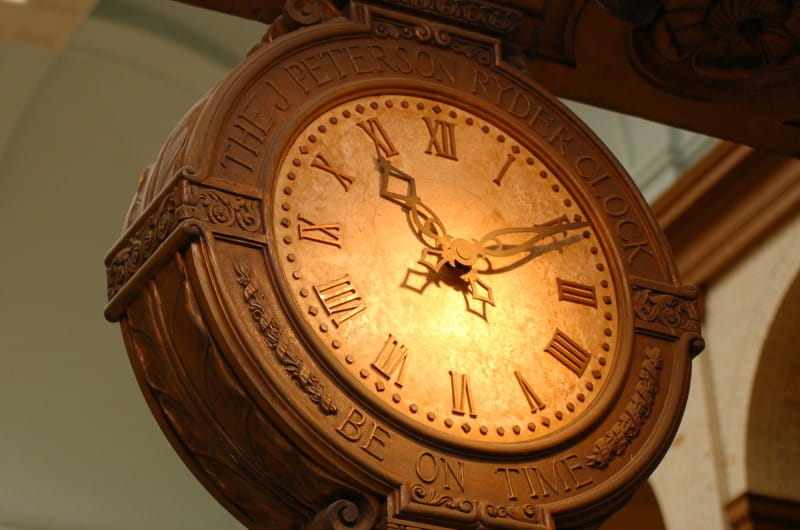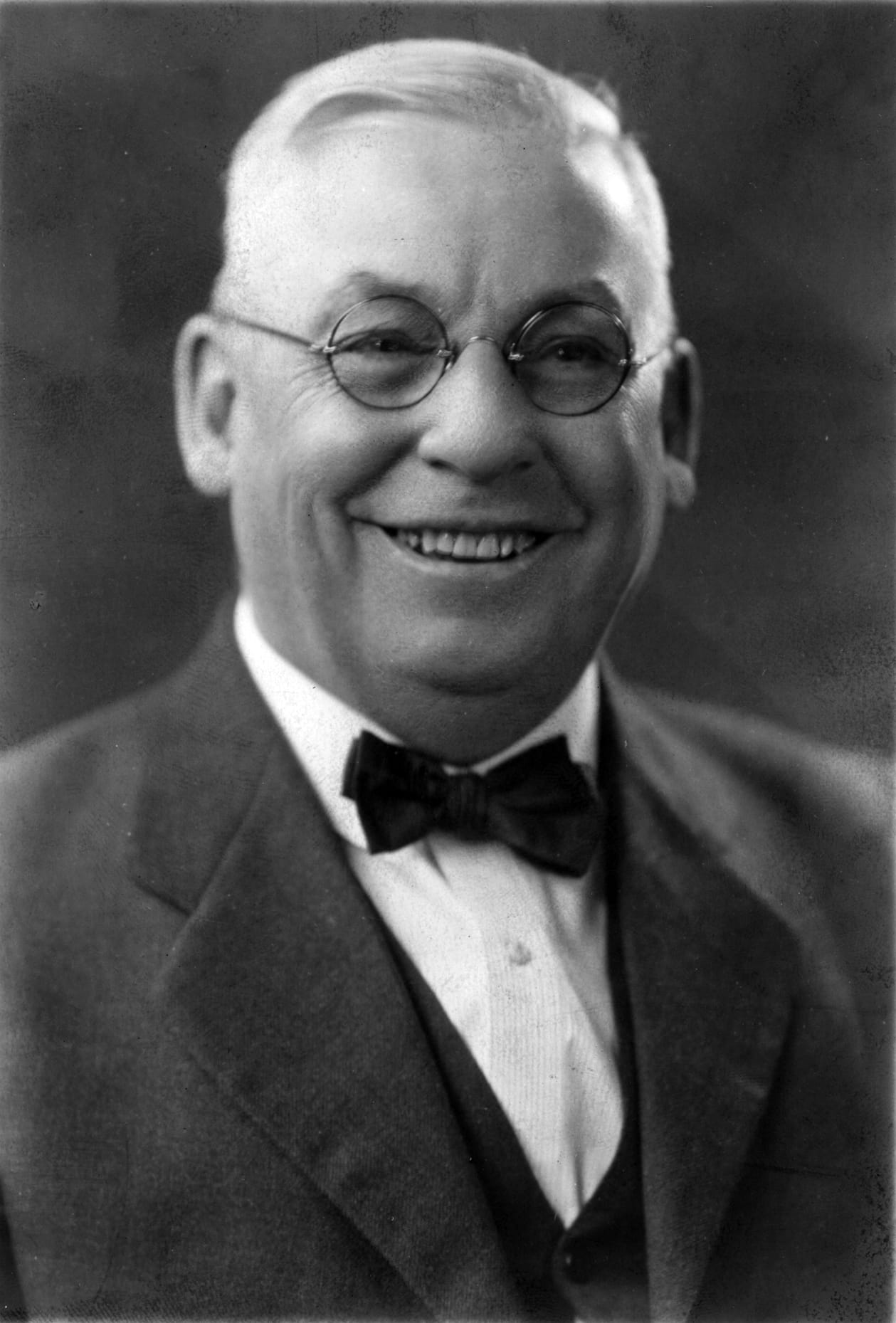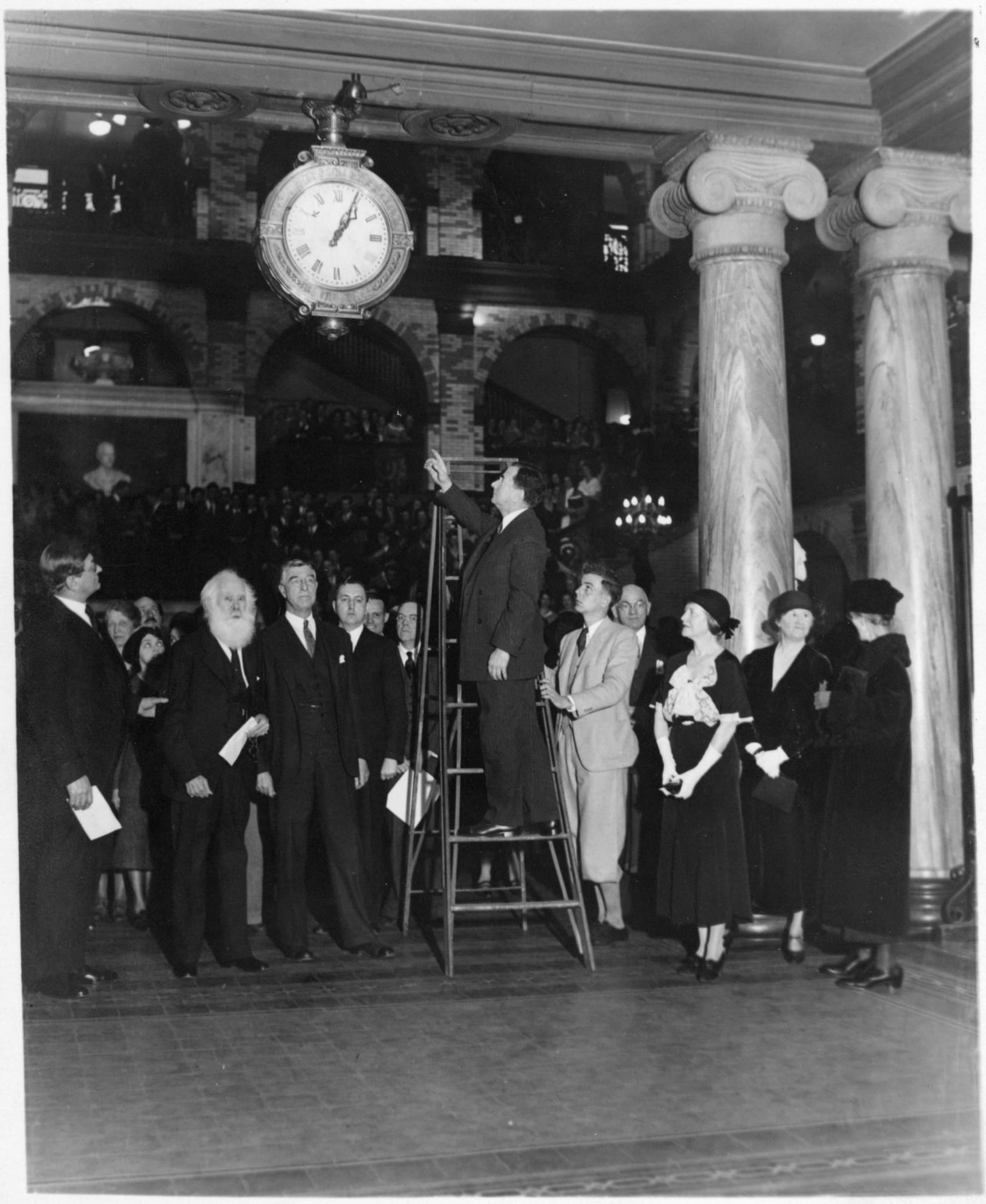Hidden Treasures: The J. Peterson Ryder Memorial Clock

If you’ve ever entered Drexel University's Main Building from its Chestnut Street entrance, then you’ve probably looked up to check the time on the hanging clock just before the Great Court. If, however, you entered the building more than 85 years ago, the clock wouldn’t have been there. Instead, you might have passed by its namesake, Dean J. Peterson Ryder, standing with a pocket watch in his hand and likely reprimanding you for your tardiness.
After all, this is the man who provided for that clock in his will — and specifically requested that it be inscribed with the phrase “Be on Time” (described as his favorite injunction to students).
Ryder dedicated 40 years of service to his beloved Drexel Institute and was one of the institute’s founding faculty members. Throughout his four decades, he held a variety of roles and titles, starting as the professor of gymnasium work and a director of the Department of Physical Training (one of the 11 founding departments from 1891). In 1917, when the physical education department was abolished, Ryder became the school librarian before serving as the school’s first athletics director from 1919 until 1922. Afterward, he served as an adviser of men for a year before becoming Drexel’s first dean of men.

In all of these roles, and many others, Ryder was an enthusiastic supporter and promoter of all things Drexel. For example, during a yearlong sabbatical starting in 1929, he met at least one Drexel alumnus or supporter in virtually every country he visited (including China, the Philippines, Indonesia, Singapore, India, Egypt, Italy, France and England). It’s worth noting that he was on time to never miss a single train or boat, which was to be expected.
When Ryder died in 1931, the bachelor bequeathed $30,000 to Drexel — equal to over $400,000 today. He provided for $10,000 (about $150,000 today) to set up scholarships for male and female students; to this day, three scholarships are given annually to a male, female and engineering student with extensive extracurricular participation. Characteristically, Ryder provided for the faculty as well by leaving the same amount to create men’s and women’s faculty lounges; the female faculty club later named itself in his honor.
Ryder’s most obvious contribution to Drexel, however, was the J. Peterson Ryder Memorial clock. He noted in a 1929 codicil to his will that he wanted a clock to be placed in the Great Court and provided the name and inscription that is still on the clock today.
The subsequent J. Peterson Ryder Memorial clock weighs 300 pounds and features ornamental bronze casting. It was officially dedicated in January 1932, about a year after Ryder’s death, as part of a memorial service held in the Main Building’s auditorium — the third memorial service to be held there, following the deaths of founder Anthony J. Drexel in 1893 and President Kenneth G. Matheson in 1931.

Carl Lewis Altmaier, a business administration professor who joined Drexel in 1894 and was good friends with Ryder for four decades, delivered the principal oration at the event to provide context to the three-word phrase that his deceased friend insisted be on the clock.
“In this set of Professor Ryder’s I see something more than a mere admonition to punctuality, important as that is in the affairs of life,” he said. “I see his most worthy hope and aspiration that his spirit might continue to live with the students of Drexel, enjoying their fellowship, still admonishing them to be honest in examinations, to keep the building in order, to respect the property of the Institute, to observe gentlemanly behavior at social functions, to perform all the little social amenities that smooth out the roughness of our contacts, and, above all, to be on time.”
This piece first appeared in Drexel Quarterly's Spring 2017 issue.Drexel News is produced by
University Marketing and Communications.

